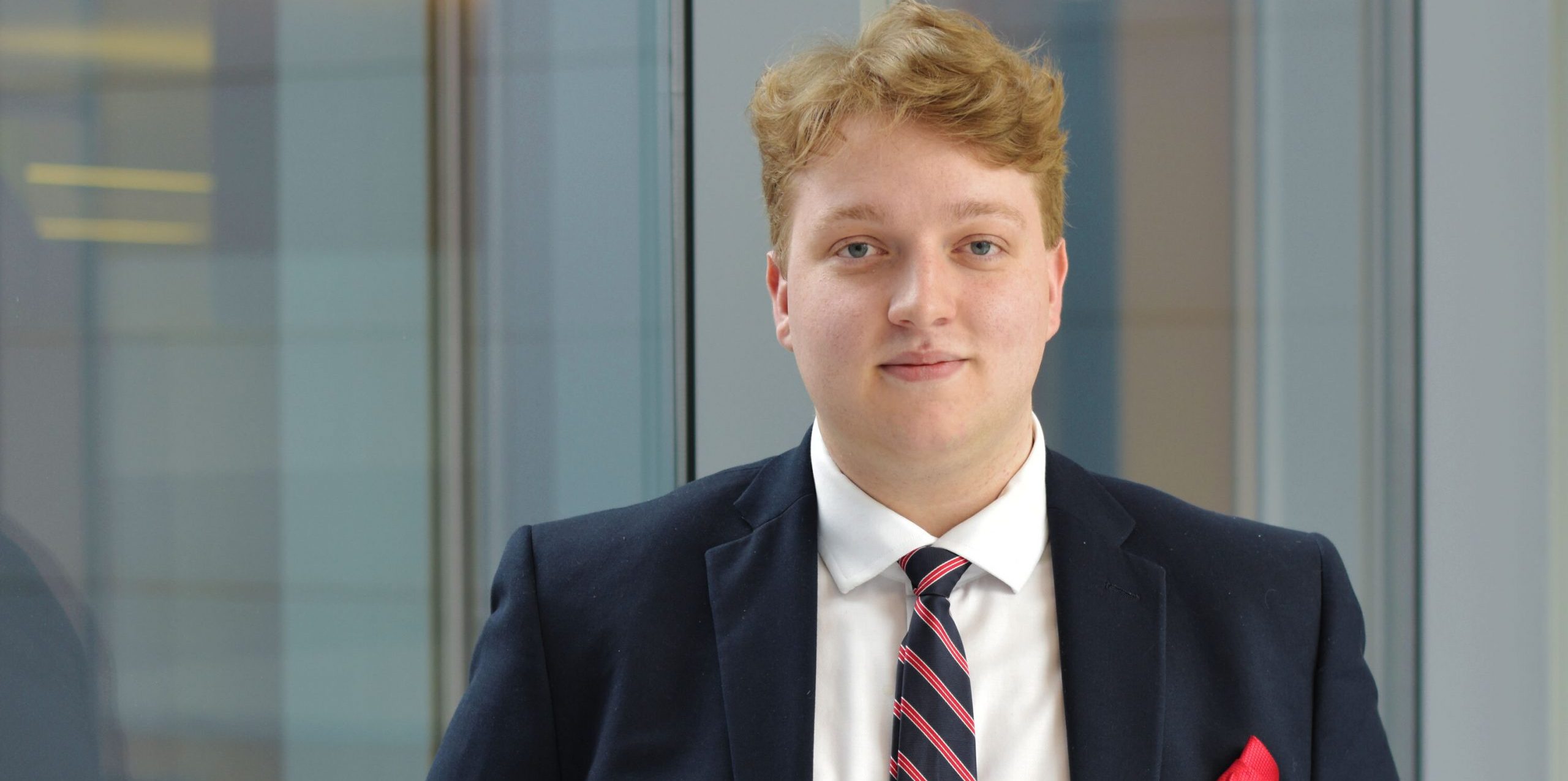OICR is hosting Jayson Pomfret as part of a unique summer internship program.
Jayson Pomfret understands that meaningful cancer research happens in the community as well as at the lab bench.
Pomfret is an undergraduate student in Queen’s University’s Bachelor of Health Sciences program who wants to pursue a career in medicine and science. He also believes strongly in population health research, and he is pursuing that interest during a unique summer internship.
Pomfret is part of the BioCanRx Indigenous Student Summer Internship Program co-funded by OICR and based at Sunnybrook Hospital. He is spending his summer contributing to a research project that aims to revamp communications materials for cancer screening programs in the Sioux Lookout First Nation in Northwestern Ontario.
OICR News recently asked Pomfret about his goals for the internship and for his future.
Why did you decide to study health sciences?
I’ve had interest in health sciences and medicine since I was younger, and that interest solidified when I had the opportunity to do a youth exchange program in the Czechia. I was hosted by two different physicians and their families while in the Czechia and I got an inside look at what it’s like to balance clinical practice with research, public health advocacy and other non-clinical medical-related interests. The ability to blend a professional career in medicine with a personal drive to better public health and undertake important research astounded and interested me quite a lot.
The project you’re working on during your internship is focused on population health for the Sioux Lookout First Nation. Why did that project interest you?
I’ve done significant academic course work in global population health as well as Indigenous population health. This project interested me because it applies that population health lens to improve cancer screening in a community where it is very much needed. And, as an Indigenous student myself, I find it imperative to use my time and resources to conduct research that can directly benefit Indigenous populations.
Can you tell us more about the project?
Indigenous populations, and specifically the Indigenous population in Northwestern Ontario, are dying of cancers like colorectal cancer at a significantly higher rate than people in Southern Ontario. One of the best ways to remedy this inequity is through effective cancer screening. But the current letters and forms sent out to the Sioux Lookout community and other communities across Ontario about the colorectal cancer screening program are quite technical and are certainly not representative of Indigenous health needs or longstanding cultural health knowledge.
My research is focused on integrating cultural safety within the ways the colorectal screening program and other screening programs under Ontario Health are communicated to the communities under the healthcare oversight of the Sioux Lookout First Nations Health Authority. I think it’s necessary to overhaul those communication materials before we can look at other interventions, so that there can be a higher level of screening to address cancer inequities in a prophylactic manner.
Can you tell us more about ‘cultural safety’ and what it means in this project?
It boils down to a couple of things in this context. One aspect is data sovereignty, and the ability for Indigenous populations to control their own data, have access to that data, and own that data. I had the opportunity to travel to Thunder Bay and speak with members of the community regarding data sovereignty. What I heard was that the community has very little trust that their data will be protected, respected and represented accurately. So that trust needs to be rebuilt.
The other aspect is making sure communications strategies around cancer screening recognize and respect Indigenous knowledge and the sacred traditions of healthcare in those communities, which isn’t the case currently.
What are your goals for your internship?
Though it’s only a three-month internship, I’m hoping to make significant contributions to the project by building relationships with the community in Sioux Lookout and listening to their needs. I think that’s the most important thing, to listen to people and hear their priorities for cancer screening, instead of just trying to overhaul the screening program from the perspective of somebody who lives in Southern Ontario.
Personally, I hope to gain a whole new perspective on research and how it can lead to actionable policy outcomes. I think that will open a wide variety of different paths I can take with my career alongside medicine.

